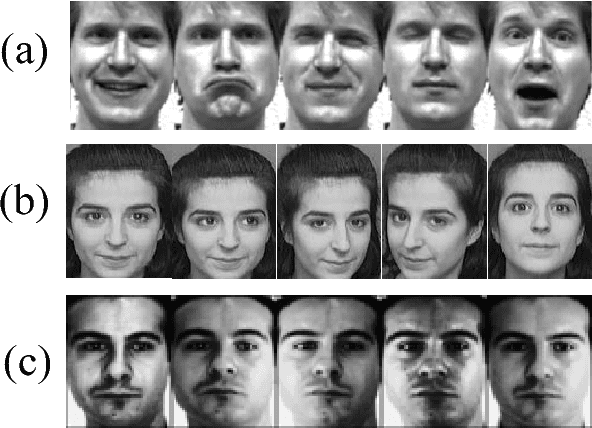Robust Face Recognition via Adaptive Sparse Representation
Paper and Code
Apr 18, 2014



Sparse Representation (or coding) based Classification (SRC) has gained great success in face recognition in recent years. However, SRC emphasizes the sparsity too much and overlooks the correlation information which has been demonstrated to be critical in real-world face recognition problems. Besides, some work considers the correlation but overlooks the discriminative ability of sparsity. Different from these existing techniques, in this paper, we propose a framework called Adaptive Sparse Representation based Classification (ASRC) in which sparsity and correlation are jointly considered. Specifically, when the samples are of low correlation, ASRC selects the most discriminative samples for representation, like SRC; when the training samples are highly correlated, ASRC selects most of the correlated and discriminative samples for representation, rather than choosing some related samples randomly. In general, the representation model is adaptive to the correlation structure, which benefits from both $\ell_1$-norm and $\ell_2$-norm. Extensive experiments conducted on publicly available data sets verify the effectiveness and robustness of the proposed algorithm by comparing it with state-of-the-art methods.
 Add to Chrome
Add to Chrome Add to Firefox
Add to Firefox Add to Edge
Add to Edge